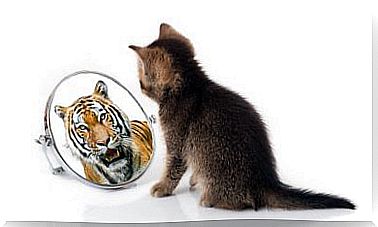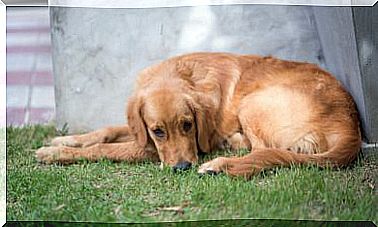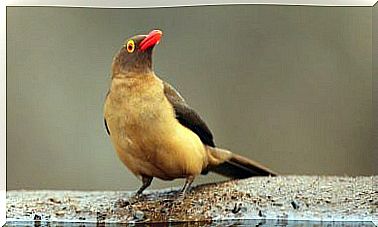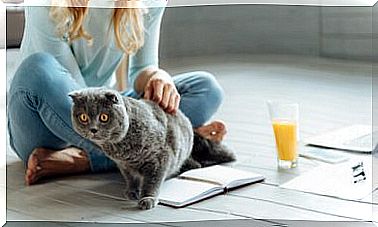We Talk About Hyperthyroidism In Cats
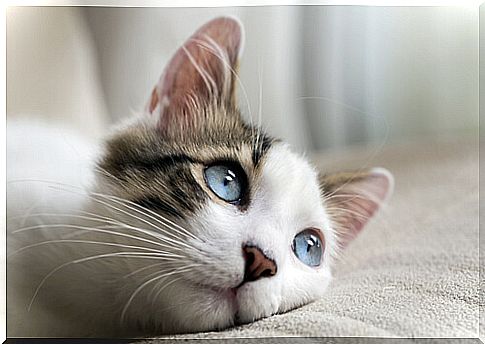
The hyperthyroidism in cats is an endocrine disease that usually manifests when they reach old age and, in most cases can be successfully treated.
Also known as physiological hormonal alteration, this disease is caused by a growth –generally benign– of the thyroid gland, located in the neck of the animal, and which causes an excess production of the hormone T4.
Signs of hyperthyroidism in cats
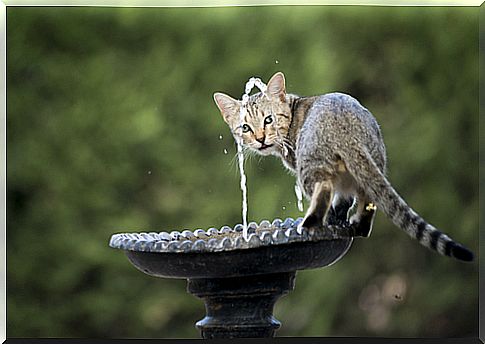
If your cat is over ten years old, pay attention to these details:
- Hyperactivity or restlessness
- Excessive hunger and thirst
- Weightloss
- Alopecia
- Obsessive or no grooming
- Changes in character
Keep in mind that it is a pathology that both males and females can develop and that the average age of a hyperthyroid cat is 13 years.
Consult with the vet
If you suspect that your kitten may be suffering from this disease, take him to the vet urgently.
After ruling out other pathologies, a clear proof of hyperthyroidism is obtained through a blood test that measures the activity of thyroid hormones. If the values of T4 are high, there will be no more doubts.
Also, the doctor will most likely be able to feel at least one of your swollen thyroid lobes.
Once the diagnosis has been confirmed and depending on the degree of endocrinopathy, there are different treatment options :
Oral medications
Oral medication, although it is effective in improving the quality of life of felines, does not eliminate the disease. But it is recommended in elderly animals to avoid surgical risks.
Surgery
The thyroidectomy involves the partial or total removal of the thyroid gland. Although it eliminates the root problem, it can only be practiced in animals in which inconveniences with anesthesia due to age are ruled out. Possible cardiac complications or kidney or liver dysfunctionalities must also be considered.
Radioactive iodine
For its part, radioactive iodine – which is not used in some countries – serves to locate and destroy the affected tissue without resorting to surgical intervention.
Possible causes of feline hyperthyroidism
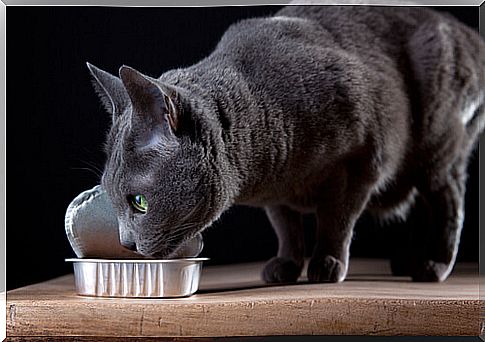
A study published in the journal of the American Veterinary Medical Association (JAVMA) in 2004 noted that there is a correlation between cats that are fed easy-open canned foods and the development of hyperthyroidism.
It turns out that some aluminum cans that use this system are coated with Bisphenol A, a substance that is transferred to foods rich in fat or oils and that could be one of the causes of hyperthyroidism in cats .
In places where Bisphenol A is not used, the cases decrease markedly.
In any case, 25% of the felines that suffer from this disease never ate canned food.
Indoor kitties, more prone
Cats that live full time in a house are the ones with the greatest chance of developing this endocrinopathy.
For this reason, it has been speculated that some chemical component of the sand that they use to relieve themselves or some substances that are used in the home, especially for cleaning, may be the causes of this ailment.
However, to date there is no concrete evidence to demonstrate a relationship between these elements and feline hyperthyroidism.
In addition to environmental factors, there are also genetic ones. There are breeds less prone to this pathology, such as the Siamese and the Himalayas .
In any case, the cases are increasing, beyond the fact that kittens have a longer life expectancy in recent times and that this disease occurs in elderly animals.
Quality of life for your hyperthyroid cat
If your cat suffers from this ailment, it is important that you treat him so that he can spend his last years with a better quality of life. You will avoid muscle deterioration, vomiting and chronic diarrhea and, above all, heart problems and hypertension.
Keep in mind that excess thyroid hormone affects almost all organs and that, without treatment, it becomes a degenerative disease.
Providing the greatest well-being in old age is also a good way to show your kitten how much you love him.



